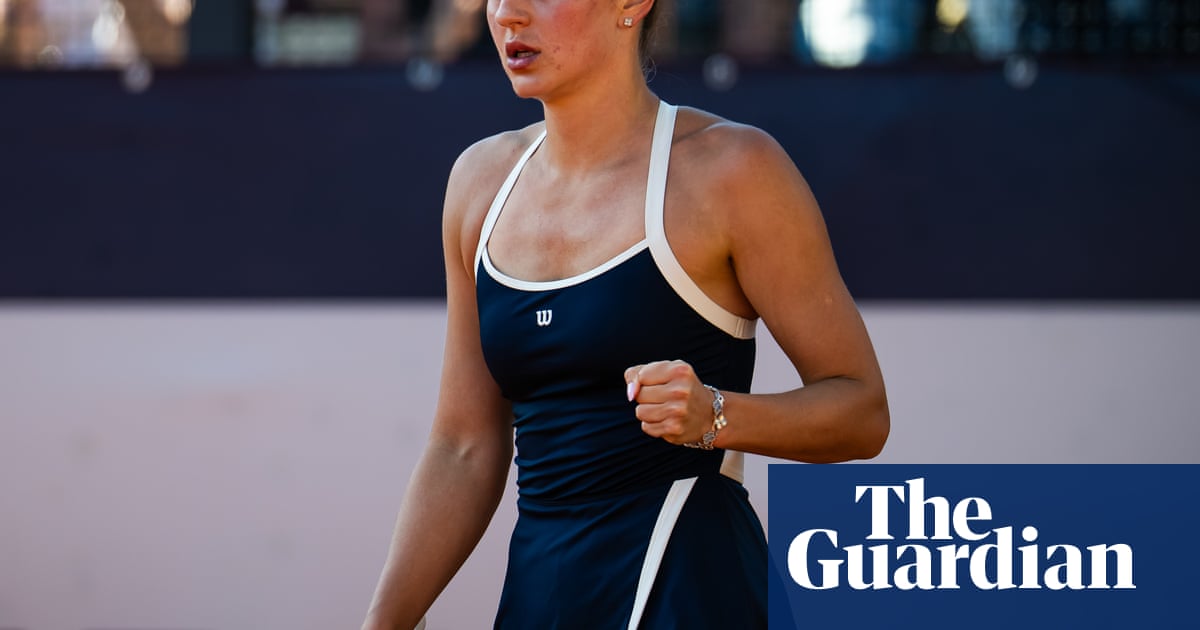The article highlights a significant moment in the world of tennis, showcasing the evolving dynamics between Ukrainian and Russian athletes amidst the ongoing war in Ukraine. Marta Kostyuk's gesture of shaking hands with Daria Kasatkina marks a notable shift in the narrative around their interactions, particularly given Kostyuk's previous stance on avoiding contact with Russian and Belarusian players.
Courage and Solidarity
Kostyuk's acknowledgement of Kasatkina's decision to switch allegiance to Australia reflects a broader theme of courage in the face of difficult political circumstances. By recognizing Kasatkina's actions as courageous, Kostyuk positions herself as a supportive figure for those who take a stand against oppressive regimes. This not only strengthens her own image as a principled athlete but also reinforces a sense of solidarity among athletes who oppose the war and advocate for human rights.
Public Perception and Narrative Control
The article aims to foster a perception of unity and moral clarity in the sports community, particularly in relation to the conflict between Ukraine and Russia. It emphasizes Kostyuk's respect for Kasatkina's stance, which serves to humanize Russian athletes who oppose their government's actions. This narrative is significant as it attempts to bridge divides within the sporting community, suggesting that athletes can transcend national loyalties in favor of shared human values.
Potential Omissions and Underlying Issues
While the article focuses on the positive interactions between the athletes, it may gloss over the complex feelings and divisions that still exist within the sports community regarding the war. There is a possibility that the article downplays the broader implications of such gestures, including the continued suffering in Ukraine and the varying perspectives among athletes from these nations. This selective focus could lead to an oversimplified understanding of the situation.
Manipulative Elements
The article possesses a degree of manipulation in its framing of events. By highlighting Kostyuk’s handshake and her praise for Kasatkina, it may inadvertently shift focus from the harsh realities of the war and the ongoing struggles faced by Ukraine. The language used is supportive and positive, which, while appropriate, could be seen as an attempt to cultivate a narrative that emphasizes reconciliation over the ongoing conflict.
Impact on Society and Politics
The implications of this story extend beyond tennis, as it underscores the potential for sports to influence societal attitudes towards political issues. The act of shaking hands can symbolize hope for reconciliation, but it also risks minimizing the seriousness of the conflict. As such, this narrative may resonate more strongly with audiences who favor peace and solidarity, potentially impacting public sentiment regarding the war.
Support and Audience
This article is likely to resonate with audiences who prioritize human rights, social justice, and the power of sports as a unifying force. It may particularly appeal to communities that support Ukraine and advocate for LGBTQ+ rights, given Kasatkina's outspoken stance on those issues.
Market and Economic Implications
While this article may not directly influence stock markets or specific sectors, it contributes to the broader discourse on corporate responsibility and the intersection of sports and politics. Companies associated with these athletes may face scrutiny regarding their stances on the war, potentially affecting public support and consumer behavior.
Global Power Dynamics
In the context of global power dynamics, the article emphasizes the shifting allegiances and moral standings of athletes from Russia and Ukraine. It reflects ongoing tensions and the international community's response to the war, highlighting how sports can serve as a microcosm for larger geopolitical issues.
Artificial Intelligence Influence
There is no clear indication that artificial intelligence played a role in the writing of this article. However, if AI were involved, it might have influenced the tone and language to ensure a more positive framing of the events. Such a focus could guide readers towards a specific interpretation of the athletes' actions and their significance.
In summary, while the article presents a compelling narrative of courage and solidarity, it is important to recognize the complexities and ongoing challenges faced by athletes from Ukraine and Russia. The portrayal of these events may serve specific agendas, but it also highlights the potential for sports to act as a catalyst for dialogue and understanding in times of conflict. The overall reliability of the article is moderate, as it emphasizes positive interactions while potentially downplaying the ongoing severity of the conflict.
